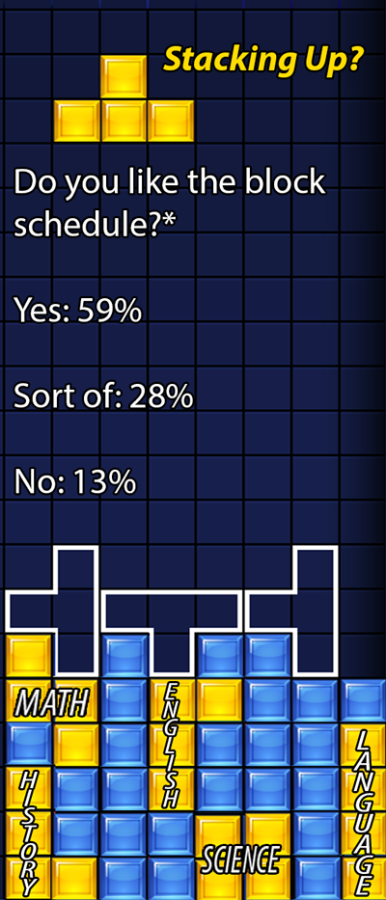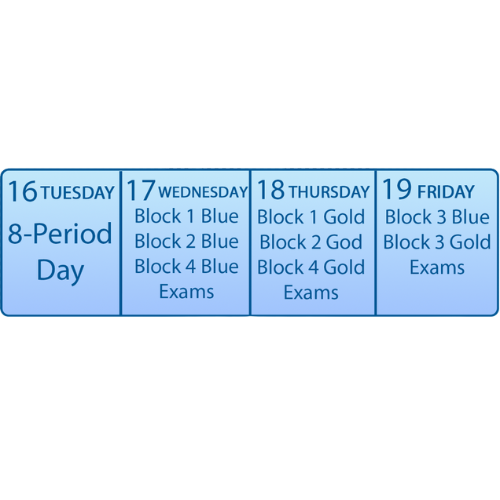After a year of having the block schedule at South, those affected by the change weigh in on both its benefits and drawbacks.
According to Principal Dr. Brian Wegley, research done on North’s schedule allowed for the year to go much smoother than he originally thought.
“I give our teachers a ton of credit,” Wegley said. “They have worked really hard to make sure that they were as ready as they could be for this shift. Even though they had given it a lot of thought […], you don’t know what a 90-minute class is [going to be like] until you’re there.”
Wegley also felt a change in the hallways and the classrooms as a result of the new schedule. He says the teachers have also tried to get the students more active in their learning through transitions they incorporated into the class.
“Last year, most of what I saw was students sitting in seats, teachers talking, and certainly some good discussion, but nothing that resembles what I see when I walk in the building today,” Wegley said. “When I walk in the building now, I see students who are often engaged in small groups, working.”
In agreement with Wegley, junior Samantha Mason enjoyed the block schedule and believed its first year was a successful one.
“I think having a lot of time between each class is nice, and I think it’s a good amount,” Mason said. “[The block schedule] is just less overwhelming, and there’s more time to get homework done.”
Opposed to Mason, some students did not like the block schedule and found the eight-period day to be more efficient, such as sophomore Maude Tarbox.
“I don’t like that our classes meet every other day,” Tarbox said. “I think I got more out of [attending a] class every day, and practicing whatever we were doing every day rather than having time off and focusing on other classes on a different day. I think it’s more effective to learn a little bit each day and then practice that [skill] each night so that you learn it better.”
Unlike his daughter, Matthew Tarbox believes that the block schedule is more beneficial to students than the period schedule.
“You get a chance to get more in-depth [in class], and I think it’s also a little bit of a college-preparation situation where you have class every other day,” Matthew said.
Biology teacher Diane Dillon claims there were also setbacks in Biology classes.
“Sometimes, I think it’s tough to set up certain labs in Biology [with] a block schedule because you have to leave the labs up a longer period of time, perhaps over a weekend,” Dillon said. “When you’re dealing with perishable items in a lab, then they’re going to be gone by the [time the] weekend’s over.”
English teacher Steven Bolf agrees with Dillon in that there are some disadvantages to the block schedule for teachers.
“The one big drawback for me is not seeing my students every day,” Bolf said. “For example, if you’re in a situation where one week, blue is Tuesday and Thursday and I’m absent or the student’s absent, we won’t see each other for a week, almost until the following Monday. That I find kind of problematic.”
Although there can be faults found in the block schedule, there are still other benefits, which cannot be found in the period schedule.
Mason said, “This year, I’ve had the best grades I’ve had out of all three years, [and] I think that’s partially because of block schedule.”








